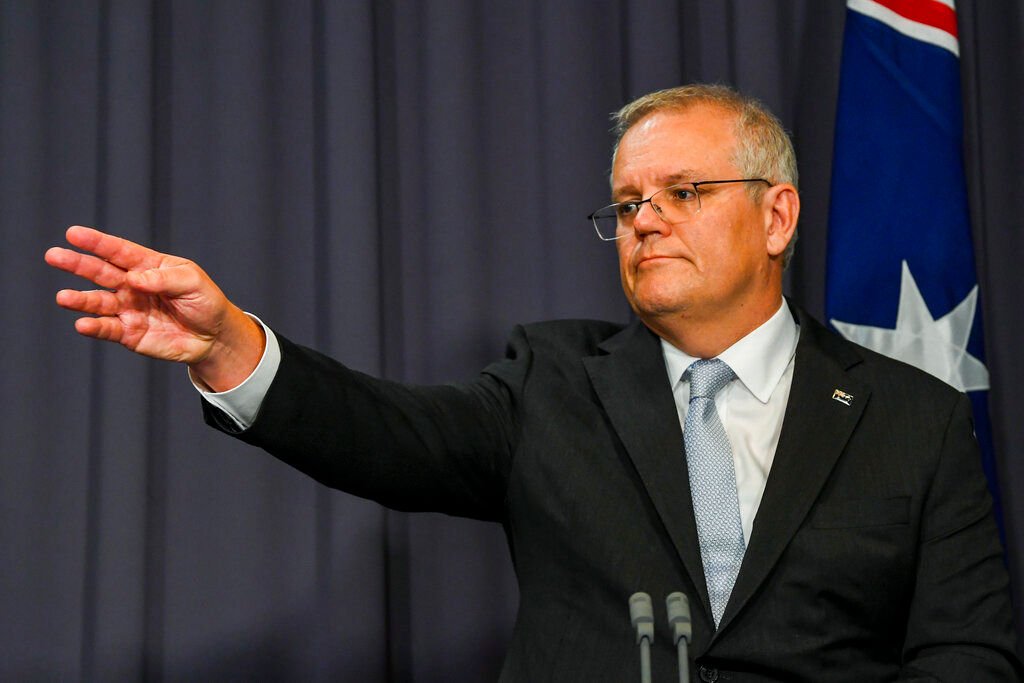Due to stringent border controls and protracted lockdowns, Australia dodged the worst of the coronavirus epidemic for two years.
However, COVID infections are now fast increasing across the country, with the Omicron variety providing a new threat just as governments and localities began to relax regulations.
Also read: NFL could become trend-setter for COVID-19 testing policies
On Tuesday, Australia’s most populated state recorded the pandemic’s biggest daily caseload, prompting Prime Minister Scott Morrison to convene an emergency National Cabinet meeting to handle the mounting cases.
However, he stated that a return to lockdowns, rigorous social restrictions, and punishments for breaking them is not the solution.
Also read: Joe Biden tests negative after close contact with aide who contracted COVID
“We have got to get past the heavy hand of government and we’ve got to treat Australians as adults,” Morrison said at a news conference in Queensland Tuesday. “We have to move from a culture of mandates to a culture of responsibility. That’s how we live with the virus into the future.”
His remarks came as New South Wales reported 3,057 cases in the 24 hours leading up to 8 p.m. local time Monday, setting a new national record for daily infections. In the state, 284 people have been hospitalised with COVID-19, with 39 of them in intensive care. Thousands of people queued outside testing facilities as they obeyed demands to take a test before the vacation.
Also read: Sixth child dies in Tasmania’s jumping castle incident
Meanwhile, Queensland state health officials cautioned Tuesday that the number of cases is doubling every two days, with an increasing number of Omicron variant infections, but that they will ease quarantine restrictions.
The increase in infections in Australia comes as many nations in the Asia-Pacific region postpone their reopening plans, with some reimposing restrictions or increasing border controls due to Omicron fears.
Omicron is spreading “significantly faster” than the Delta variety, according to the World Health Organization, and is generating infections in persons who have been vaccinated or who have recovered from COVID-19. However, scientists are yet unsure whether the variation causes more severe disease or how effective existing immunizations are against it.







